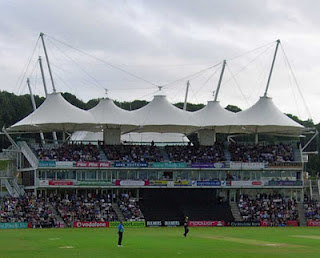First Published By: The Scottish Government
OVER HALF A MILLION SCOTS WILL BE PROTECTED FROM UK GOVERNMENT CUTS TO COUNCIL TAX BENEFIT.
The UK Government will abolish the existing Council Tax Benefit in April 2013 and cut the successor
budget by 10 per cent. The Scottish Government and COSLA have now agreed to cover the £40
million cost of the cuts in 2013-14 - the Scottish Government will provide £23
million and COSLA will provide £17 million.
558,000 people in Scotland on the lowest incomes currently receive Council Tax benefit, including the unemployed, pensioners,
those who cannot work because of disability, carers and people who receive tax
credits. We will not allow them to be victims of UK cuts - we will work to
protect them.
Working closely together, the Scottish Government and councils will now
cover the £40 million cost of the Council Tax benefit cut
in 2013-14 to protect vulnerable individuals, a unique approach across Great
Britain. In the coming months we will establish a national schedule of
reductions to Council Tax, so that
anyone currently receiving Council Tax benefit will not have to pay more Council Tax in the next financial year.
The Scottish Government is looking after household budgets, with a Council Tax freeze, free prescriptions, concessionary
travel, and our abolition of road tolls and tuition fees. It is right that we
take action to protect the thousands of pensioners and families who would have
been affected. Only through this decisive action by the Scottish Government and COSLA can
vulnerable people in Scottish society be protected.
We have challenged the UK Government on their cuts to Scotland and their
attack on the least well off. We will put in place measures that reflect the
compassion and fairness of Scotland in line with our Council Tax freeze.
COSLA President Councillor Pat Watters said: “Scottish
local government has a long and proud history of standing up for and protecting
the most vulnerable in society. “In taking this decisive action to cover
the cost of Council Tax benefit, together with the Scottish Government,
we will once again be protecting the most vulnerable in society.
Can I be clear that we are talking here about the real victims of this
particular cut and that is why Scottish local government firmly believes it is
the right and proper thing to do and why we are willing to put in our share of
the £40 million needed to protect them from the reality of such a harsh cut.”
David Manion, Chief Executive of Age Scotland, said:
“It is reassuring to see the Scottish Government and COSLA working
together to ameliorate some of the pain that older, vulnerable people will feel
and Age Scotland welcomes the decision to allocate £40 million to help them
with their Council Tax bills.
Council Tax benefit is a hugely important benefit for older
people on low incomes and we are delighted that following the move to devolve
responsibility for this entitlement to Scotland, the Scottish Government and
COSLA are ensuring that it is retained. “Westminster’s 10 per cent
reduction in funds would lead to a significant drop in support and additional
financial pressures for some people who are already struggling on low incomes
and we are confident that older people below pension age who are on low wages,
or are unemployed and have long-term health problems will greatly benefit from
this additional support.”
558,000 people receive Council Tax Benefit (CTB) in Scotland, which is
worth £387 million to Scotland. Eligibility is based on a number of
factors, including income, savings, receipt of other benefits and financial
status of partners.
Certain people are automatically considered for Council Tax benefit if they receive other benefits though a
system of ‘passported benefits’, such as income support, Pension credits or Job
Seeker’s Allowance. CTB is administered by local authorities on behalf of
the Department of Work & Pensions (DWP), who meet the costs of benefits and
the administration of the system.
Council Tax Benefit is paid to Local Authorities, not to
individuals. Individuals in receipt of CTB receive a Council Tax bill net of
the benefit paid by DWP. Councils handle applications, calculations and any
initial appeals against awards and provide the public face of support to
applicants.
The UK Government’s Welfare Reform Act will abolish CTB from April 2013
and the UK Government will then ‘localise’ support for Council Tax to
individual Councils in England. Reduced funding - current CTB levels
minus 10 per cent - will pass to the Scottish Government which will be
responsible for assisting individuals to meet their Council Tax liabilities from April 2013.





